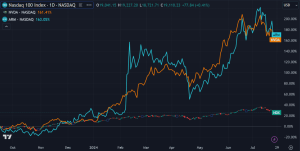Share this page:
The average credit card purchase APR – the total cost you are charged per year for borrowing money – has reached its highest level ever according to research by financial website Moneyfacts. As a result, millions of cardholders in the UK who carry a balance run the risk of having to pay hundreds or even thousands of pounds more in interest on their cards. It doesn’t have to be like this for you, though.
It is actually possible to avoid paying interest when you take out a new credit card and keep more of your money in your pocket. Here is everything you need to know.
What’s happening to the average credit card APR?
According to a study carried out by Moneyfacts, between the start of June and the end of August 2021, the average credit card purchase APR in the UK rose to 26.0%. This is the highest level ever seen according to Moneyfacts.
A combination of charges is thought to be responsible for this increase. These charges include rate increases to some of the lowest rate cards, new card launches and some card withdrawals.
Is there a silver lining?
While the average credit card APR has increased, there is some good news for users. According to Moneyfacts, introductory 0% offers, which allow customers to make purchases interest free for a set period, have improved.
The average interest-free period is now 316 days, up from 285 days in June. This means that users can now benefit from a longer interest-free period before the standard APR kicks in.
And in other goods news, balance transfer fees have also fallen to 2.10% on average, down from 2.28% a year ago.
And although the average interest-free balance transfer period has fallen to 548 days from 550 days in June, terms are up year-on-year from 529 days.
What does a higher APR mean for credit card users?
A higher APR means that the interest costs on your credit card spending will be higher. It may take you longer to pay off your debt because a larger portion of your payments will go toward interest.
Fortunately, there are ways to avoid paying interest on a credit card entirely. Let’s take a look at two of them.
1. Pay your credit card balance in full every month
You won’t have to pay any interest if you pay off your entire credit balance each month.
If you plan to clear your debt every month, make sure that you also look for a card with a lengthy grace period. This is the period of time between the end of a billing cycle and the date your payment is due.
Understandably, paying off your balance in full may not always be feasible, especially in the aftermath of the pandemic.
If you find yourself carrying a credit card balance, the next best thing you can do is make more than the minimum payment. The bigger the repayment, the more you will reduce your balance and the less interest you will owe.
2. Stick to 0% APR credit cards
As shown by Moneyfacts, the terms of interest-free purchase credit cards have improved over the last quarter. Users now stand to enjoy an average of 316 days of interest-free purchases.-
If you have to use a credit card but can’t pay off your balance in full every month, stick to credit cards that offer you a long interest-free period on purchases. We compared some of the latest 0% credit card offers from the UK’s top lenders to help you find one that suits your needs.
Keep in mind that to avoid paying any interest, you have to clear your balance before the interest-free period ends.
Furthermore, it’s important to know the interest-free period applies to purchases but not to cash advances. If you use your credit card to get a cash advance, you’ll start paying interest from the date of the transaction. The interest and fees on cash advances can be hefty. So, if your goal is to save money, avoid cash advances at all costs.
Could you be rewarded for your everyday spending?
Rewards credit cards include schemes that reward you simply for using your credit card. When you spend money on a rewards card you could earn loyalty points, in-store vouchers airmiles, and more. MyWalletHero makes it easy for you to find a card that matches your spending habits so you can get the most value from your rewards.
Was this article helpful?
YesNo
About the author
Sean is a personal finance writer with a strong passion for helping others become more financially literate and make better financial decisions. He covers everything from credit cards to savings to investing.
Share this page:
Some offers on MyWalletHero are from our partners — it’s how we make money and keep this site going. But does that impact our ratings? Nope. Our commitment is to you. If a product isn’t any good, our rating will reflect that, or we won’t list it at all. Also, while we aim to feature the best products available, we do not review every product on the market. Learn more here. The statements above are The Motley Fool’s alone and have not been provided or endorsed by bank advertisers. John Mackey, CEO of Whole Foods Market, an Amazon subsidiary, is a member of The Motley Fool’s board of directors. The Motley Fool UK has recommended Barclays, Hargreaves Lansdown, HSBC Holdings, Lloyds Banking Group, Mastercard, and Tesco.
This post was originally published on Motley Fool







